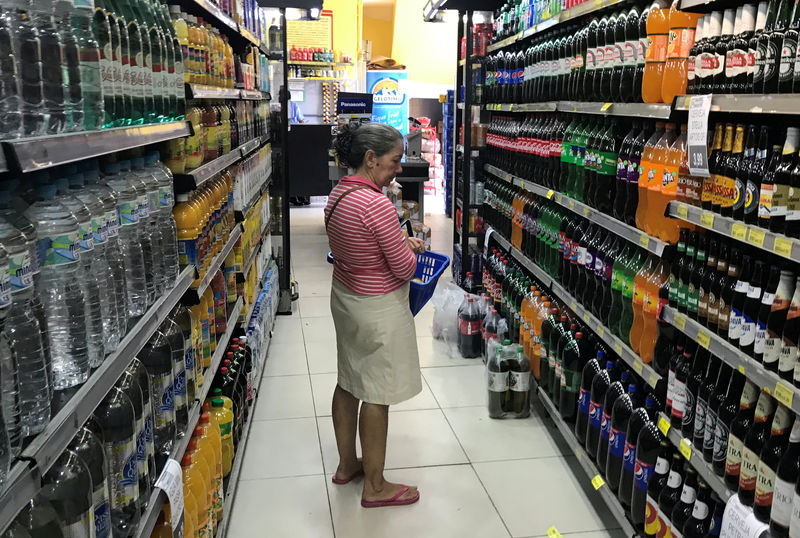By Jamie McGeever
BRASILIA (Reuters) - Brazil's economy shrank in the first quarter for the first time since 2016, data showed on Thursday, underscoring a deepening malaise in Latin America's largest economy and pushing it closer to a double-dip recession.
The contraction piled pressure on President Jair Bolsonaro, who was swept into office in January in part on his market-friendly pledges to boost growth and lift the gloom hanging over the economy since a brutal 2015-16 recession.
Brazil's gross domestic product (GDP) shrank 0.2% from the prior quarter, statistics agency IBGE said, in line with the median estimate in a Reuters poll. The economy grew 0.5% from a year earlier, in line with economists' forecasts.
Leading indicators from April and May, such as consumer confidence, bank lending and export data, suggest the economy is still in a funk, raising the risk of another recession.
"The signs so far in the second quarter are that the economy is not recovering," said Isabela Guarino, chief economist at XP Asset Management in Sao Paulo, who forecast growth of just 0.1% in the April-June quarter.
"But there is a very real risk of contraction, which would take the country into a technical recession. It's not our base case, but it's a rising risk," she said.
The government, central bank and private sector economists have all warned that the economy's weakness in recent months is likely to color its performance for the rest of the year.
The central bank's weekly survey of around 100 financial institutions showed the average estimate for 2019 GDP growth has fallen for 13 consecutive weeks and now stands at just 1.2%. It was 2.5% at the start of the year.
Fixed investment fell 1.7% in the first quarter, industrial and agricultural output fell 0.7% and 0.5%, respectively, while a 1.9% slump in exports and 0.5% rise in imports meant net trade was a drag on growth, IBGE figures showed.
On the other hand, services activity grew 0.2%, household spending rose 0.3% and government expenditure increased 0.4%.

"The economy is stagnating, but the bias is downward. Growth will be near zero this year," said Jose Francisco Goncalves, chief economist at Banco Fator in Sao Paulo.